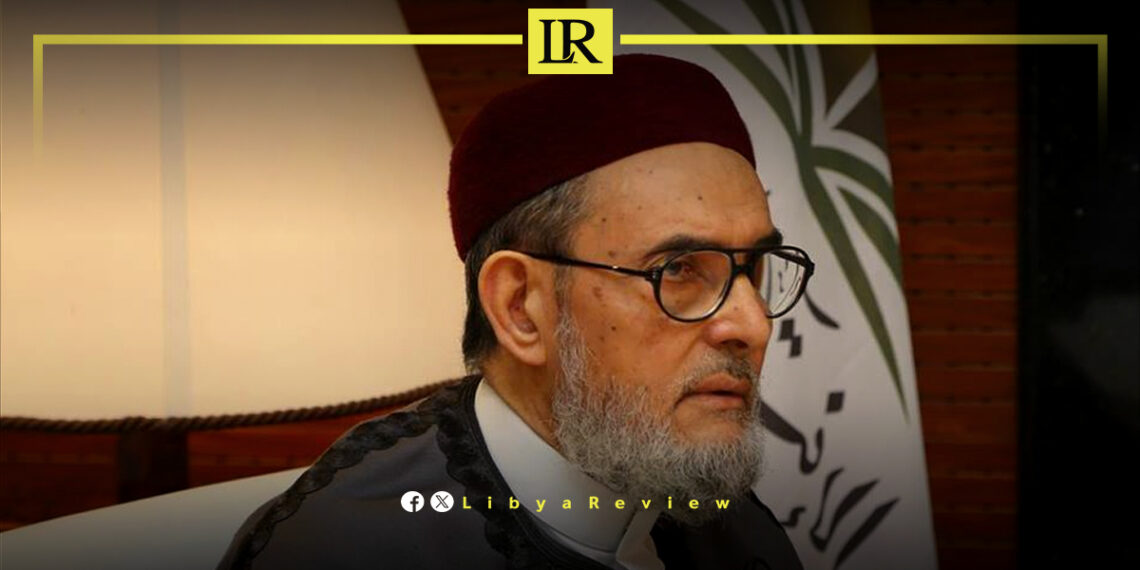Al-Sadiq Al-Ghiryani, Libya’s former Grand Mufti, has emerged as a polarizing figure whose actions and rhetoric have played a significant role in deepening the nation’s divisions. Leveraging his position as a spiritual leader, he has aligned himself with the Muslim Brotherhood, issuing controversial fatwas that serve their political agenda while undermining Libya’s fragile path to stability.
Al-Ghiryani has maintained a close relationship with the Muslim Brotherhood, serving as their ideological and spiritual ally. In return for his loyalty, he has received the group’s support, solidifying his influence as their de facto guide. His divisive fatwas and statements have repeatedly obstructed efforts to stabilize Libya, prioritizing political gains for the Brotherhood over national unity.
Since his dismissal as Grand Mufti in 2014, Al-Ghiryani has doubled down on his inflammatory rhetoric, encouraging militias and opposing the Libyan National Army (LNA). His pronouncements have consistently fueled discord, with critics accusing him of prioritizing chaos over peace.
In recent appearances on the “Al-Tanasuh” channel, Al-Ghiryani has called for Libyans to take to the streets and recreate the chaos of 2011 and 2012. He argues that such unrest is necessary to counter what he labels “passivity,” despite his persistent opposition to elections. Critics suggest that his stance against elections stems from fears that democratic outcomes could diminish the Brotherhood’s influence in Libya.
One of his most controversial fatwas discouraged Muslims from performing additional Hajj or Umrah pilgrimages, urging them instead to allocate those funds to support militias fighting the LNA. This aligns with his broader strategy of promoting conflict to serve external agendas supportive of the Brotherhood.
Al-Ghiryani’s influence extends beyond Libya’s borders, as he has openly encouraged illegal migration, urging young Libyans and Arabs to embark on perilous journeys across the Mediterranean. This not only endangers lives but also places political pressure on European nations, creating leverage for the Brotherhood in negotiations.
His rhetoric has also included support for violent actions. In 2017, Al-Ghiryani described the bombing of a Misrata court complex as divine punishment and praised terrorist attacks on Libya’s Oil Crescent region. He has also called on residents of Ajdabiya, Benghazi, and Derna to join extremist groups in their fight against the LNA.
Al-Ghiryani’s divisive statements target not only militias but also Libya’s current government. He has called for military action against eastern Libya to seize control of oil fields, advocating for the suspension of oil and gas exports to Europe as a means to counter American influence. These actions threaten Libya’s primary source of revenue and highlight his disregard for the nation’s economic stability.
Additionally, Al-Ghiryani has condemned international agreements, including a 2020 memorandum of understanding between Libya’s Government of National Accord and France, labeling it a violation of Islamic principles. His contradictory views on migration have further muddled his stance, as he blames illegal migration for introducing extremist groups into Libya while encouraging it as a pressure tactic against Europe.


